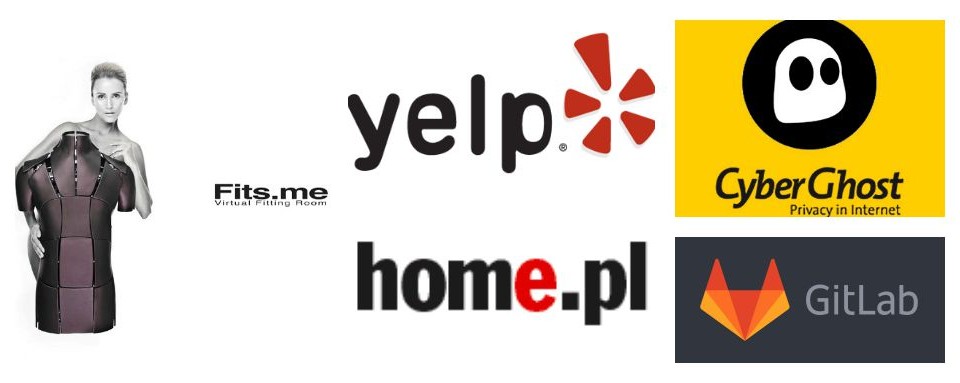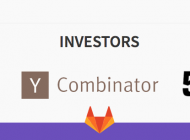It’s been a busy month revamping the website and diving into work, and below we’re catching up on July’s news from Eastern European startups.
The Kiev-born co-founder of Yelp Max Levchin leaves Yelp
Max Levchin leaves the board of directors of NYSE-traded Yelp after the announcement of quarterly results (net loss of $1.3 m), the stock went down by almost one third in return. He said that he would like to focus on his startup Affirm, along with «other demands on his time».
Yelp is a popular review site that relies on advertising from local business and reports more than 80m unique visitors in the Q2 2015. More on Yelp’s situation here.
I would remind that Levchin’s startups include PayPal, Slide (a media-sharing service acquired by Google for $228m) and Affirm, a consumer lending service that raised $275m (debt+equity) in early May 2015 in the Series B funding round led by Spark Capital Growth with participation from new investors Jefferies and Andreessen Horowitz and previous investors Khosla Ventures and Lightspeed Venture Partners. Affirm’s target audience are millennials who are generally not feeling good about the traditional banking system.
Japanese Rakuten buys Estonian Fits.me
In 2012 we wrtotet a neat post about how Fits.me virtual fitting rooms work and how they put robots at the service of online shoppers. In the beginning of July the London-based company was bought by Rakuten for an undisclosed price. Founded 2010 in Estonia, it received a total of $14.3 million in funding from 6 investors and acquired such customers as Austin Reed, CC Fashion, Henri Lloyd, Hugo Boss, M&Co, QVC, Thomas Pink and others. Fits.me is marketed as software-as-a-service, and the retailers pay an initial implementation fee and then regular monthly fees starting at a few thousands euros.
Fits.me clients were able to increase conversion rates and decrease returns. That’s because size charts have nothing to do with how the actual garment will look on a particular person, and our tastes are different: some like it tight, some like it loose.
Rakuten, a Japanese e-commerce a la Amazon, has been in a shopping spree, filling the cart with a local travel site Voyagin, a Spain-based videp streaming service Wuaki, e-commerce websites in the US (Buy.com) and France (Priceminister), and the VoIP calling and texting app Viber (registered in Cyprus, but developed in Belarus and Israel).
More details on Techcrunch.
United Internet from Germany negotiated the acquisition of home.pl, a leading Polish hosting provider
United Internet agreed with home.pl on a €135 million acquisition deal, which is yet to be approved by antitrust authorities, as reported in the press release. Home.pl will operate independently under the same management.
United Internet AG is one of the Europe’s leaders in internet access and cloud services, with a market cap of €9,2 billion , 7,800 employees and 47 million accounts in 11 countries. Home.pl is the leading ISP on the Polish market, with 240 employees and over 300,000 customers and expected EBIDTA of €10 million.
United Internet aims to strengthen the foothold in the dynamic and promising Polish internet market and promote webhosting and cloud computing services. In the past years United Internet has already acquired InterNetX, Sedo, fasthosts, united-domains, and they are planning their shopping for new business in the future.
CyberGhost launches a private privacy accelerator in Bucharest
CyberGhost calls together startups dedicated to protecting users’ privacy online, and they are welcome to apply for the accelerator program. In September only 4 of them will be selected to come to Bucharest and receive $27,000 in funding from CyberGhost in exchange for 5% of shares. The startups in the accelerator will be able to use CyberGhost’s API and integrate their VPN, subscription model, accounts in their own product.
The mentoring company is a VPN as a service provider based in Romania, with 5 million users and 300,000 daily active users. Top markets are Germany, then come the U.S., U.K. and France. Ironically, CyberGhost was initially a German company, but they relocated to Bucharest since Romanian privacy laws are more appropriate for such a business . By contrast, in Germany they would have been obliged to keep logs which they didn’t mean to do.
In fact, when I read posts about how much information about me my internet provider, the state and some random hackers control, I’m getting paranoid. With its pro-privacy bootcamp CyberGhost aims to make online privacy a mainstream and build online security ecosystem, and, according to CyberGhost CEO Rob Knapp, Europe is a much better place for that than the US, where state surveillance is unbeatable.
Read more here.
GitLab raised $1.5m in a seed round
The investors included Khosla Ventures, CrunchFund, 500 Startups, Ashton Kutcher and Joe Montana.
Founded in Ukraine in 2011, GitLab is an open-source competitor of GitHub, a code collaboration platform for software developers. In contrast with GitHub, which is out since 2007, GitLab offers free private repositories and provides the user with more control, analytics, security, and can be deployed on customers’ servers. They claim having more than 100,000 customers, including NASA, SpaceX, IBM, and CERN.
And just today GitLab announced that they want to be so open they will make public all the discussions related to bugs, new features and other topics related to their products. Read more in the GitLab’s blog post.













